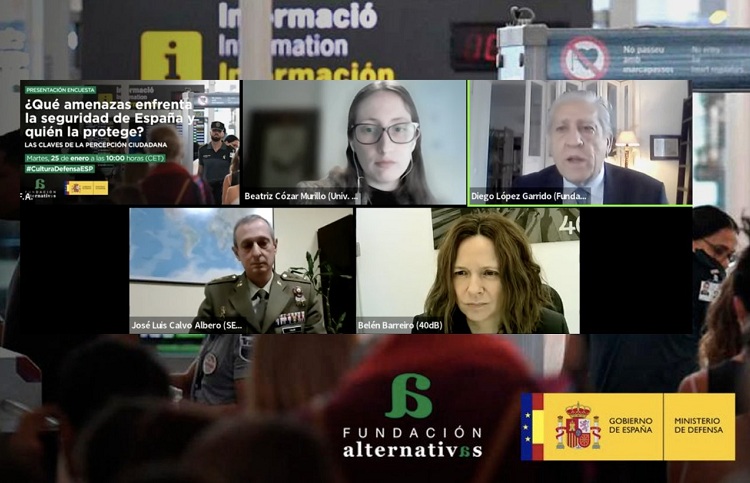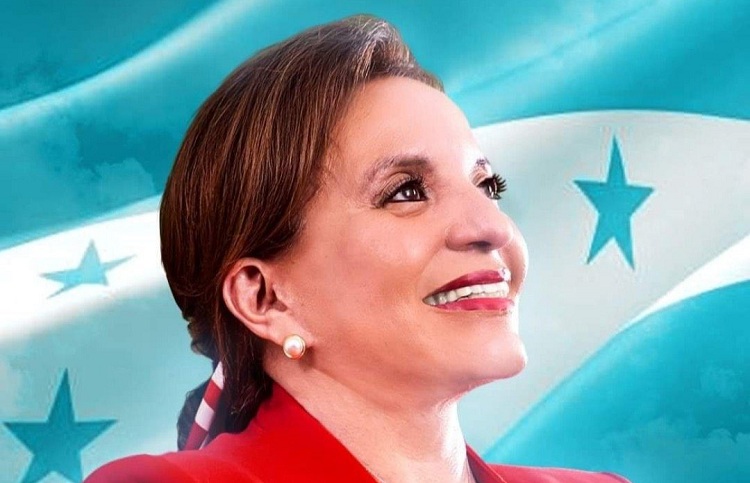The Diplomat
Infectious diseases and international terrorism are, in the opinion of Spaniards, the main threats to their security, according to a survey by the Alternativas Foundation, which also indicates that the citizens of our country trust the EU more than NATO and the State in security matters and that six out of ten Spaniards are “little or not at all” informed about defense.
These are the main conclusions of the survey What threats does Spain’s security face and who protects it? Culture of defense in Spain, presented yesterday virtually and which was elaborated by the company 40dB for Alternativas with the support of the General Secretariat of Defense Policy (SEGENPOL). The event was presented by Diego López Garrido, executive vice-president of the Alternativas Foundation.
One of the most relevant issues of the research is that six out of ten Spaniards (61%) consider themselves “little or not at all” informed about defense and national security issues. In contrast, 36.7% consider themselves to be fairly or very informed. “This is a point to work on, there is a lot of misinformation with defense-related matters,” 40dB CEO Belén Barreiro stated during the event.
Regarding international actors, the study indicates that, for 53.5% of Spaniards, ISIS and Sahel jihadist groups represent a high risk for the security of our country, compared to 26.5% who consider the risk to be medium and 8.6% who think the risk is low. As for the countries, 37.4% consider the risk of an attack from Russia to be medium, 19.7% think it is high and 29.1% believe it is low. Regarding China, 20.2% see a high risk, 33.9% medium and 33.3% low. Likewise, 40.6% of respondents believe that the risk of an attack from North Africa is medium, 25.5% low and 21.4% high.
In addition, among the main threats to Spain’s security, the spread of infectious diseases ranks first, with 44.4%, followed by international terrorism (42%), climate change and natural disasters (40.8%), migratory flows (31%, among which Vox voters stand out, 58.8%) and disinformation and political polarization at the national level. Supply crises reach 23.3%, instability in North Africa and sub-Saharan Africa 17.3%, proliferation of weapons of mass destruction 13.7%, the power and influence of China 10.3% and armed conflicts just 7.7%. “There are times when we don’t know the source of the threat. The most important thing is that ordinary citizens sometimes fail to understand the full potential or the full consequences of a given threat,” said Beatriz Cózar Murillo of the University of Cadiz.
In fact, armed conflict is the threat against which citizens feel most protected, with 46% feeling between fairly and very protected. This is followed by international terrorism, with 43.1%. In contrast, almost 67% feel little or no protection against the power and influence of China, 68.8% feel insecure against the spread of infectious diseases, two out of three survey participants feel little or no protection against instability in North Africa and sub-Saharan Africa, and only 17.9% feel protected against climate change and natural disasters. “Citizens feel protected in the face of those threats in which they identify the person in charge of neutralizing them. However, there are threats in which it is not very clear who is responsible and they feel unprotected,” said José Luis Calvo Albero, director of the Coordination and Studies Division of SEGENPOL, during the event.
As far as institutions are concerned, a quarter of citizens (24.9%) think that the EU is the body with the greatest capacity to protect against threats, while the Spanish state has 12.6% and NATO 17.8%. Regarding the European Defense Brigade, two out of every three participants in the survey would agree that Spain should join the contingent of EU member states and a slightly higher percentage supports greater coordination between member states and greater autonomy with respect to the USA in security matters, while Germany is the NATO country that generates most confidence, with 44%, followed by France (37.8%), Italy (32.9%) and the USA (28.5%). At the other extreme is Turkey, with 62.8% saying they have little confidence in this country.







